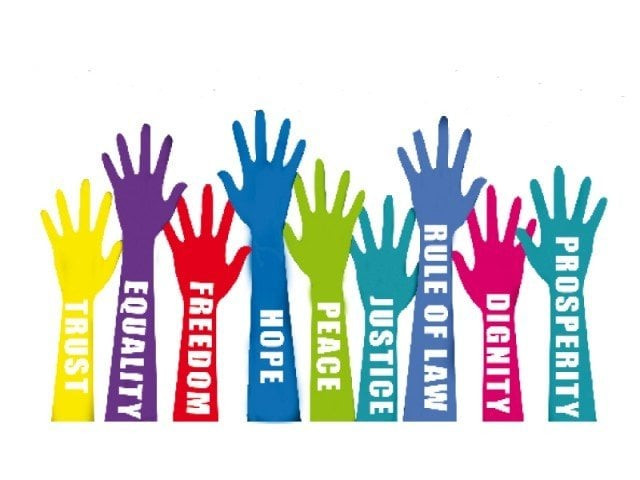HR laws enacted as per UN goals
Pakistan has taken a range of legislative, policy and institutional steps to advance the human rights agenda

Pakistan has taken a range of legislative, policy and institutional steps to advance the human rights agenda with a focus on protection and promotion of rights of women, children, journalists, refugees and vulnerable sections of society.
According to official data available with APP, the measures are in line with the standards of the Universal Periodic Review (UPR) of the Human Rights Council of the United Nations and go a long way in safeguarding rights of the Pakistani citizens, especially women, children and transgender persons.
The federal government had enacted legislation to safeguard rights of women and children, including Women’s Property Rights Act, 2020, Zainab Alert, Response and Recovery Act 2020 and, Anti-Rape (Investigation and Trial) Act 2021.
The Transgender Persons (Protection of Rights) Act, 2018 guaranteed rights for transgender citizens and prohibited any discrimination against them in their enjoyment of fundamental rights of voting, inheritance, education, work, property, access to public areas.
The enactment of ICT Rights of Persons with Disability Act, 2020 went further to safeguard and prevent any discriminatory acts against persons with disability. Senior citizens were also protected from discrimination under ICT Senior Citizen Act, 2022.
The Human Rights Council through the Universal Periodic Review mechanism periodically reviews the human rights record of every UN member state. The ultimate goal of UPR is to strengthen the realisation and enjoyment of human rights in a country.
Established in 2007, this peer-driven review mechanism provided a platform for dialogue and constructive engagement among states. In line with the United Nations goals, Pakistan had also paid significant attention to strengthening rule of law, accountability and access to justice in the country.
Among these were the Juvenile Justice System Act, 2018, which laid down a comprehensive system to deal with juvenile cases. Under the Legal Aid & Justice Authority Act, 2020, an authority had been established for providing affordable and quick access to justice to the poor and vulnerable segments.
The Torture and Custodial Death (Prevention and Punishment) Act, 2022 criminalised torture, death and rape in custody and protected due process and fair trial rights of under trial persons. The government has also taken steps to provide a safe and enabling environment to journalist community.
The Protection of Journalists and Media Professionals Act, 2021 (Journalist Act) stipulated the establishment of a commission as a grievance redressal mechanism for journalists and media professionals in any case of intimidation and harassment.
Despite the serious social and economic impacts of the Covid pandemic, global economic downturn and devastating floods of 2022, the government had taken wide ranging measures to alleviate poverty, provide adequate living standard, strengthen social safety net, and reduce inequalities.
During the pandemic, the Benazir Income Support Programme (BISP) helped poor families affected by the pandemic and an amount of approximately Rs180 billion to around 14.9 million beneficiaries (Rs12,000 per beneficiary) was disbursed.
A bill to criminalise enforced disappearances was undergoing parliamentary process. Besides, despite the economic constraints, Pakistan had continued to safeguard and advance basic rights of over 3 million Afghan refugees.


















COMMENTS
Comments are moderated and generally will be posted if they are on-topic and not abusive.
For more information, please see our Comments FAQ